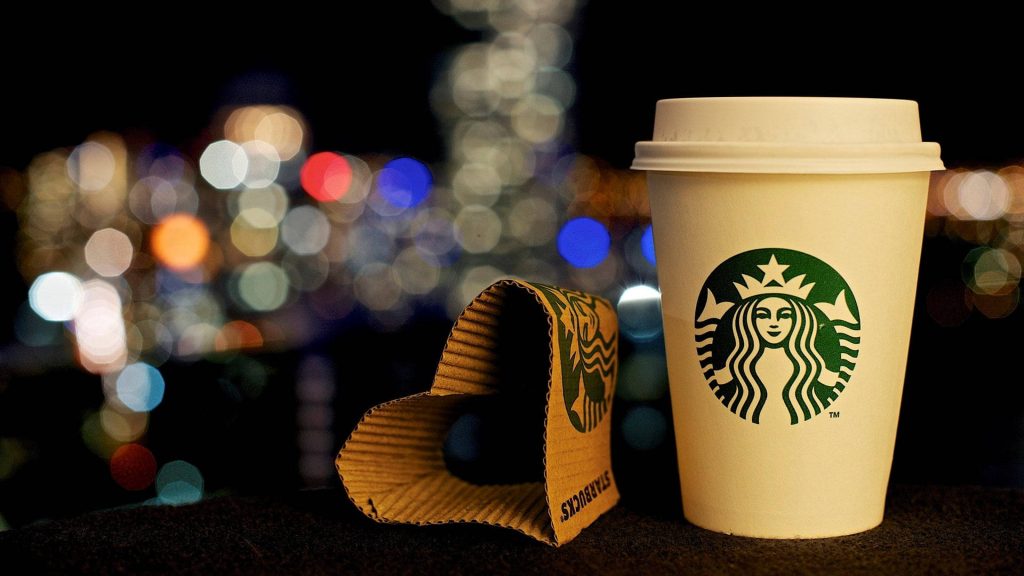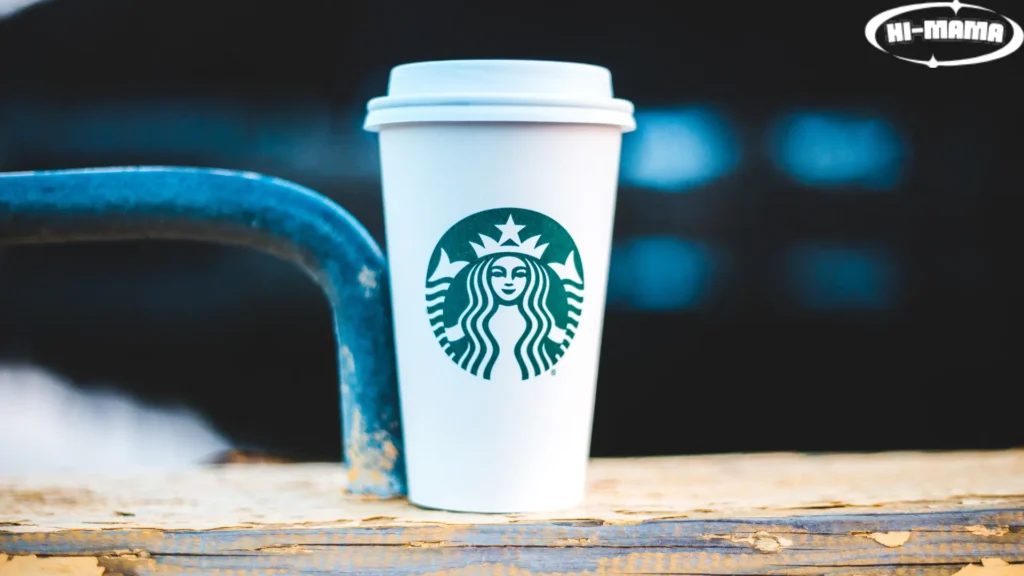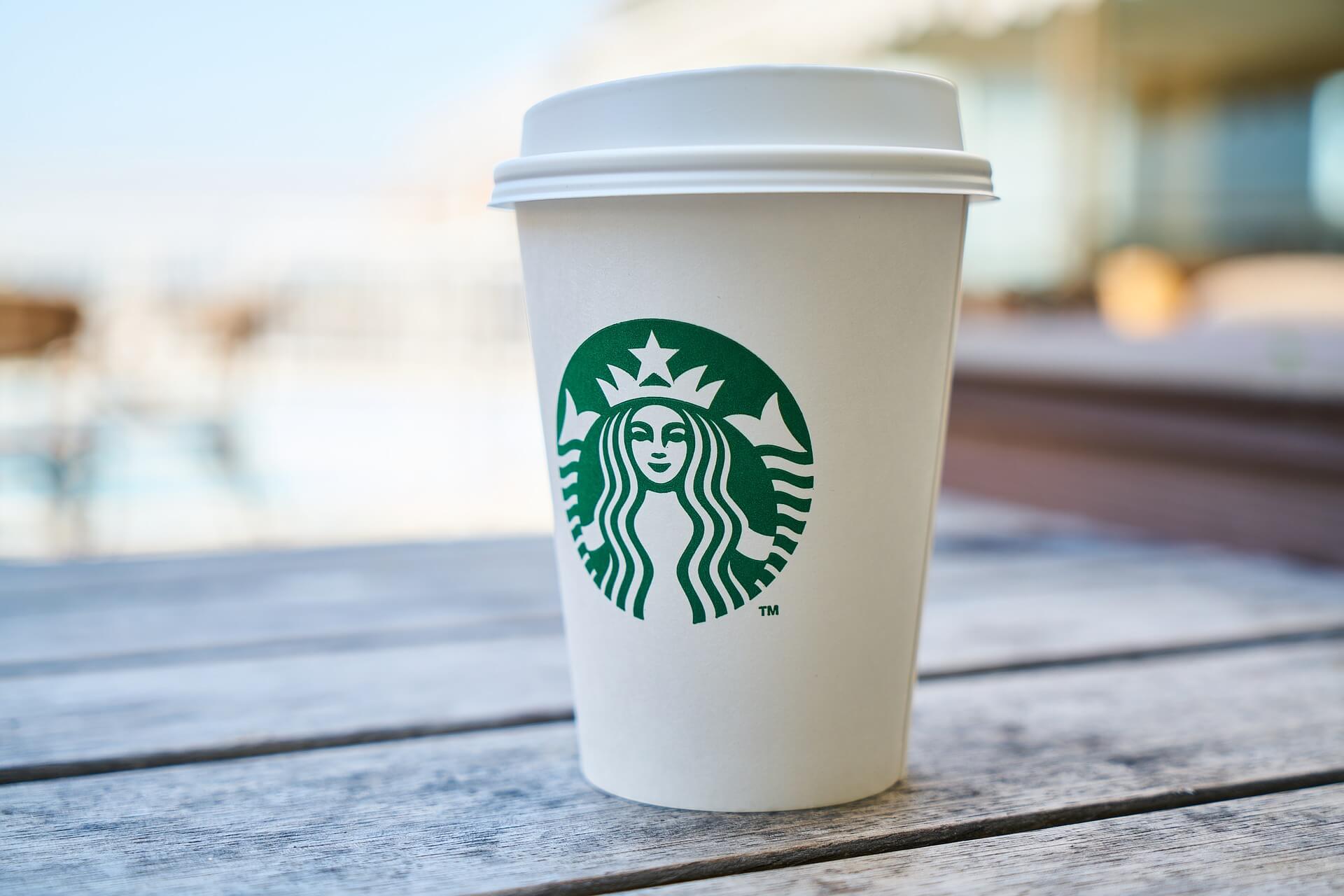Are Starbucks coffee cups recyclable? This question has been on the minds of many environmentally conscious coffee drinkers. As one of the world’s largest coffee chains, Starbucks’ impact on the environment is significant, and the recyclability of its disposable cups has been a subject of ongoing debate.
Starbucks is the biggest and most well-known chain of coffee shops. It utilizes over 4 billion single-use coffee cups annually, and research shows that 99% of these cups are not recycled. However, the real query is: Are Starbucks Coffee Cups Recyclable?
Understanding the Materials in Starbucks Coffee Cups
Before diving into Starbucks coffee cups‘ recyclability, it’s essential to understand the materials used in their construction. These disposable cups are primarily made from a combination of paper and plastic.
The paper makes up the cup’s outer layer, which offers structural support as well as a surface on which the company’s name and logo can be printed. A tiny coating of polyethylene plastic coated the internal lining of the cup, acting as a moisture barrier to keep the paper from getting wet and leaking.
This plastic lining is a crucial component that enables the cups to hold hot beverages without disintegrating or leaking. However, it also presents a significant challenge when it comes to recycling the cups.
Can Starbucks Coffee Cups Be Recycled?

The love the globe has for coffee is no secret. So much so that the annual global discard rate for single-use coffee cups is thought to be 2.5 billion. Even though coffee is the preferred beverage for most people, it’s crucial to keep in mind that even one daily cup of coffee can result in 23 pounds of waste annually.
Reusing used coffee cups is the only method to reduce “coffee pollution.” However, this isn’t possible with disposable coffee cups because they typically come with a plastic liner. In Australia, for example, compostable coffee cups are used as an environmentally friendly alternative to conventional coffee cups, but the country’s present composting facilities are not designed to handle them well. This suggests that because some coffee cups are not recyclable, they represent a substantial environmental risk. However, experts have shown that Starbucks cups can be recycled.
Yes, Starbucks Coffee cups are recyclable. The reason for this is that Starbucks coffee cups are made of paper and plastic, which are both 100% recyclable materials. So, recycling your Starbucks coffee cups after use is a simple and eco-friendly solution.
It is important for you as a customer to understand that your recycled Starbucks coffee will be combined with other goods at the recycling facility. Because of this, it’s best to rinse the cup and remove any leftover food particles or liquids before placing it in the recycling bin.
Are Starbucks Coffee Cups Compostable?
Despite what many people think, Starbucks coffee cups may be composted because they are composed of polyethene, a substance that decomposes naturally with the help of microorganisms in a compost pile. The polylactic acid (PLA) in these coffee cups is derived from corn, so they are also biodegradable.
Contrary to popular belief, recycling paperboard is relatively easy. Paperboard is entirely biodegradable as long as it isn’t contaminated with food, water, or oil. Specific treatment might be used to speed up the biodegradation of some paperboard materials.
Because Starbucks coffee cups are made of different ingredients than other plastics, it is important to consider this when composting them.
Are Starbucks Coffee Cups Reusable?
Over the past few years, “reuse” has gained popularity and expanded usage. Like recycling, reusing things can help us lessen our environmental impact by reducing the quantity of garbage we produce.
Reusing these coffee cups is only reasonable, given that many people rely on Starbucks coffee to start their days. Click this link to find out more about reusing Starbucks coffee cups!
Are Starbucks Coffee Cups Dishwasher Safe?

Yes, Starbucks cups are dishwasher-safe. To ensure they come out clean and unharmed, place them on the top rack of your dishwasher and select a gentle wash cycle. If you’re still concerned about the quality of the cups after going through the wash cycle, you can hand wash them instead. Starbucks cups are lightweight and easy to clean, so they’re perfect for busy mornings on the go.
Are Starbucks Coffee Cups Microwave Safe?
It is safe to use a microwave on Starbucks cups. Because of the wax coating’s ability to reduce splatters and increase the cup’s durability when heated, it is safe to use in the microwave. Before putting the cup in the dishwasher, make sure you take off the plastic cover that comes with it.
Starbucks cups have a heat-resistant liner because they are intended to be used in the microwave. Our cups are sturdy because of the liner, which maintains the integrity of the cup even when cooked in the microwave.
Starbucks microwave-safe cups are composed of a blend of plastic and paper materials. But the lid is composed of simply plastic. Make sure the lid is off before placing the cup in the microwave and run it at maximum power for around 15 seconds if you want to use it.
Are Starbucks Paper Coffee Cups Recyclable?
Yes, Starbucks paper coffee cups are recyclable, but they are not easily recyclable due to the plastic lining used to prevent leakage. While Starbucks has been working on developing fully recyclable and compostable cups, most of their current cups are not widely accepted by recycling facilities and paper mills.
The Future of Sustainable Coffee Cups
The issue of whether Starbucks coffee cups are recyclable or not is complex and multifaceted. While the company has taken steps to promote sustainability and explore more recyclable cup alternatives, the current disposable cups present significant challenges due to the combination of materials used.
As consumers become increasingly aware of the environmental impact of disposable cups, the demand for sustainable solutions will continue to grow. Starbucks, along with other coffee chains and brands, will need to prioritize the development of truly recyclable or compostable cup options to meet the expectations of eco-conscious consumers.
People can still have a big impact in the meantime by adopting sustainable options like reusable cups, patronizing companies that provide greener options, and cutting back on the use of throwaway cups in general.
By working together, consumers, coffee companies, and recycling facilities can pave the way toward a more sustainable future, where enjoying a cup of coffee doesn’t come at the expense of our planet.

